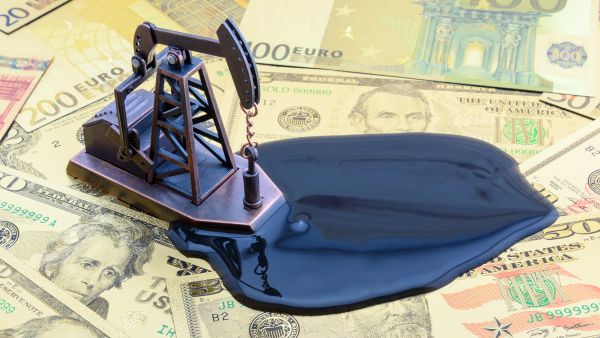As we welcome the New Year, members of the OPEC+ cartel are having their first meeting, one of many monthly summits that have been agreed on after the April 2020 plunge, in an attempt to maintain stability in the oil market and avoid the challenges experienced during 2020.
OPEC warned of risks to the oil market from the resurgent pandemic, just as the group and its allies are set to meet to consider another increase in production https://t.co/4KyWMfozO5
— Bloomberg Middle East (@middleeast) January 3, 2021
The virtual meeting set to bring all the OPEC+ members to an agreement in regard to February's oil production rate has also witnessed prolonged discussions between the non-OPEC members that prefer production rates to be increased, led by Russia, and the cartel's members who seem more cautious, mainly Saudi Arabia and Algeria.
Despite a generally green performance in the markets, crude prices have dropped on Monday as the meeting was approaching, suggesting worry of the outcome and the reported disagreements between Saudi and Russia, which has caused discussions to be extended for a second day, as producers hope to reach a unanimous agreement.
Prior to the meeting, Russia's energy minister suggested an increase of 5-6 million barrels a day throughout 2021, a recommendation that will likely not be warmly welcomed by Saudi Arabia, where the fear of another wave of the Coronavirus has been higher recently, especially in light of the new variant that originated in the UK last month.
Saudi and other careful OPEC members are still suffering the effects of the 2020 oil plummet, the one caused partially by the Saudi-Russian price war last spring, before oil prices collapsed amid global lockdowns in April, devaluating the West Texas Intermediate crude barrel price to less than -$40 for the first time in history. Moreover, these members are still on the watch for a highly volatile year in the markets, given the current political tensions around the world, whether it's the rising potential of US military action in the region, the situation with Iran, or the anticipation of the final weeks before the US president-elect assumes power on the 20th of January.
Being the leader of OPEC and the world's third producer of oil, Saudi is especially careful when it comes to production raises, as its economy is still largely oil-dependent, despite the country's accelerating effort to diversify the economy by 2030. However, Russia seems quite keen on increasing production throughout the year, reflecting on the strong demand recorded in China following the authorities' announcement of controlling the pandemic.
How predictive is the strip? We highlight how often the strip fails to anticipate large moves in WTI prices. Overall, the magnitude and suddenness of oil market tightness comes quickly and is generally unforeseen. Something to consider for 2021 #oott #energy #CrudeOil #Alberta pic.twitter.com/2Rp4qrhPtS
— Jeremy McCrea, CFA (@JeremyMcCreaCFA) October 29, 2020
Amid an increasingly difficult environment for projections, the oil market is expected to face challenging times during 2021, but news of successful vaccines have restored some hopes of a return to business as usual during the first quarter of the year, not only restoring international travel but also boosting the tourism sector, which will eventually reflect positively on the oil industry.
Do you think that OPEC+ monthly meetings will help the oil industry avoid another disastrous drop in prices during 2021? Do you agree with Saudi's careful approach insisting on current production cuts or would you rather support the Russian suggestion of increased production?







